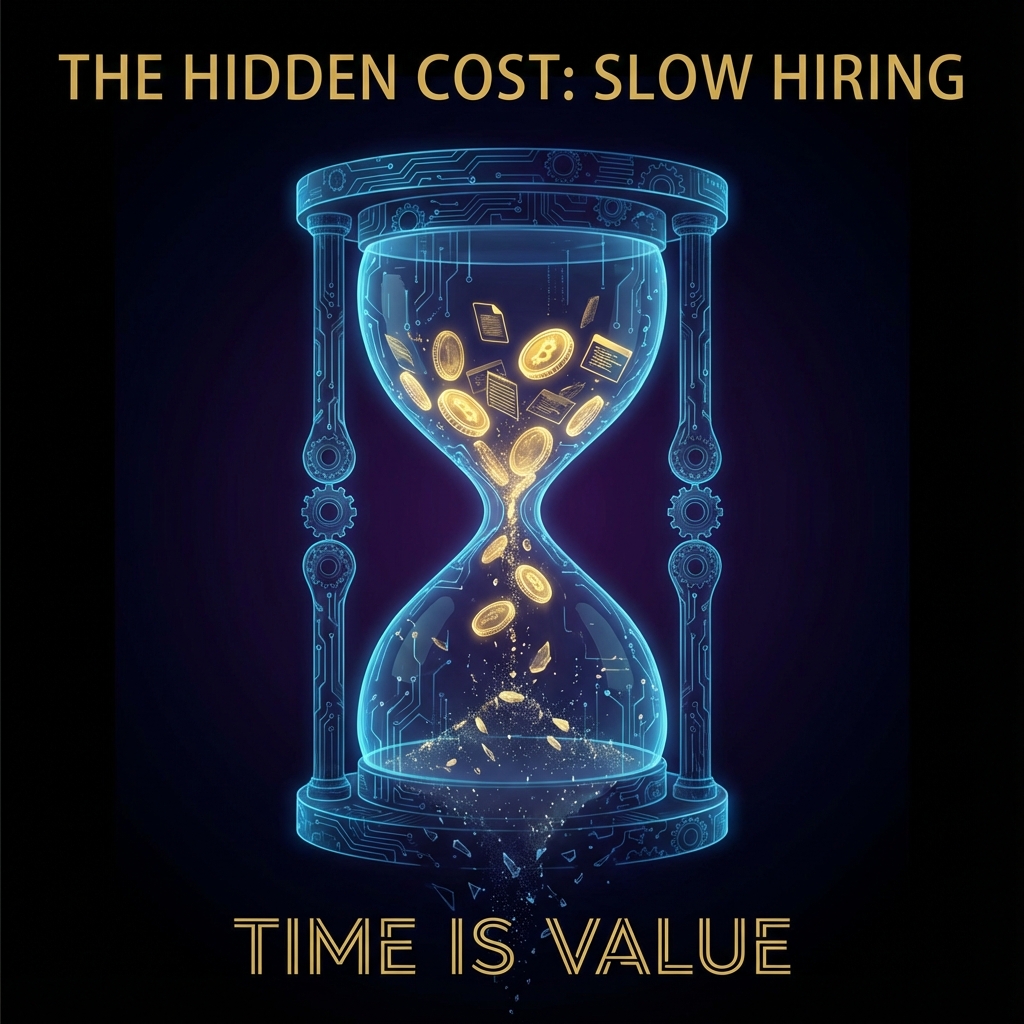The Hidden Cost of Slow Hiring: Why 2025 is the Year of AI Recruitment
Recrutis Team
Content Team
Discover the staggering costs of manual hiring, from 44-day wait times to recruiter burnout, and how AI is cutting these numbers in half.

In the high-stakes world of talent acquisition, speed isn't just a metric—it's money. Yet, as we approach 2025, the traditional hiring process is slowing down, becoming more expensive, and burning out the very people tasked with building teams.
If you feel like hiring is harder than ever, you aren't imagining it. The data proves it.
The 44-Day Bottleneck
According to SHRM's latest projections for 2025, the average time-to-fill a position has crept up to 44 days. That's nearly a month and a half of lost productivity, stalled projects, and increased workload for your existing team.
Why the delay? The culprit is often the "Resume Black Hole."
Recruiters are drowning in applications. With the ease of "Easy Apply" buttons, a single job posting can attract hundreds of unqualified candidates. Manually screening these resumes is no longer just inefficient; it's impossible to do effectively at scale.
The Price of Panic Hiring
When a role sits open for 44 days, the pressure mounts. Desperation sets in. And that's when mistakes happen.
The Stat: The U.S. Department of Labor estimates that the cost of a bad hire can reach up to 30% of the employee's first-year earnings.
For a manager earning $100,000, a single bad hire could cost your company $30,000—not to mention the intangible costs of lowered morale and team disruption.
The Human Cost: Recruiter Burnout
It's not just the bottom line that suffers. The people behind the process are breaking point. A staggering 81% of HR leaders report feeling burnout (PeopleSpheres).
They are spending their days doing administrative grunt work—scanning keywords, scheduling interviews, and managing spreadsheets—instead of doing what they do best: connecting with people.
The Solution: Agentic AI & Semantic Search
This is where the conversation shifts. We aren't talking about simple keyword matching anymore. The old ATS systems that rejected a "Project Manager" because their resume said "Project Lead" are obsolete.
Recrutis leverages Semantic Search and Agentic AI to understand the intent and skills behind the words.
How It Changes the Math
- Instant Screening: Instead of days, AI parses and ranks thousands of resumes in seconds.
- Contextual Understanding: It knows that "React.js" and "Frontend Development" are related, ensuring you don't miss hidden gems.
- Efficiency Gains: Companies adopting AI recruitment tools report a 50% reduction in time-to-hire (ResourceRA).
2025 Trends: Skills Over Pedigree
As we move into 2025, the trend is clear: Skills-Based Hiring.
Degrees and job titles are becoming less important than verified capabilities. AI is the only tool capable of analyzing a candidate's portfolio, GitHub, or work history to infer skills that aren't explicitly listed.
Conclusion
The hidden cost of slow hiring is too high to ignore. By automating the screening and matching process, you don't just save time; you save money, protect your team from burnout, and ensure you hire the right person, the first time.
Ready to cut your hiring time in half? Start your free trial with Recrutis today.